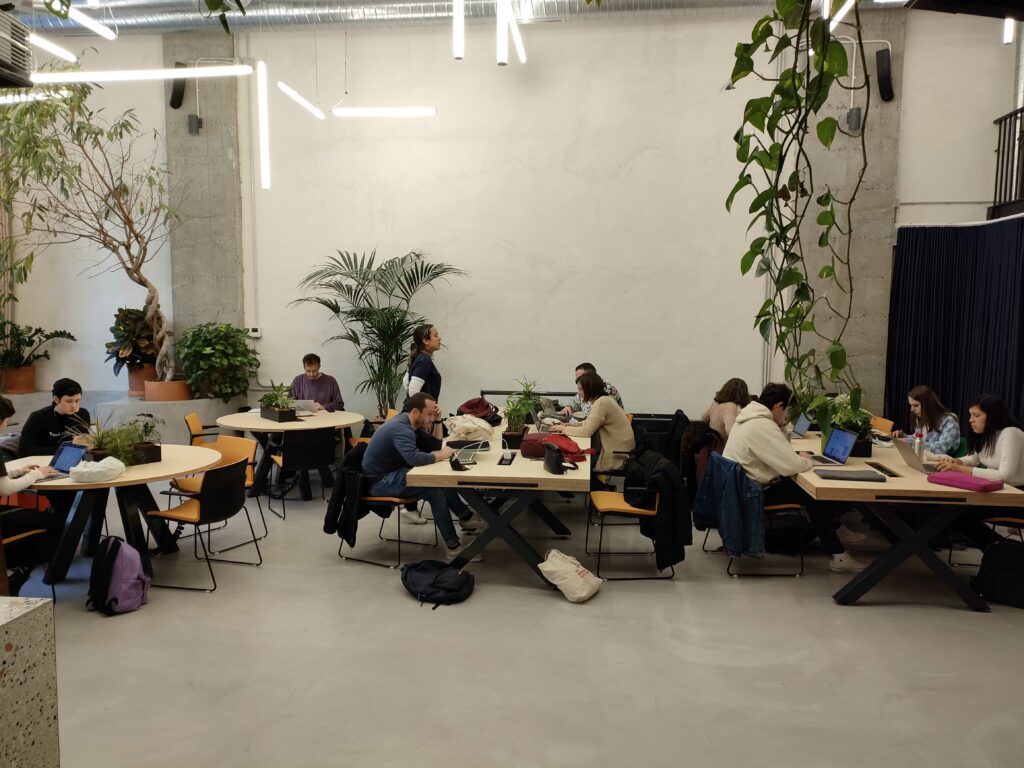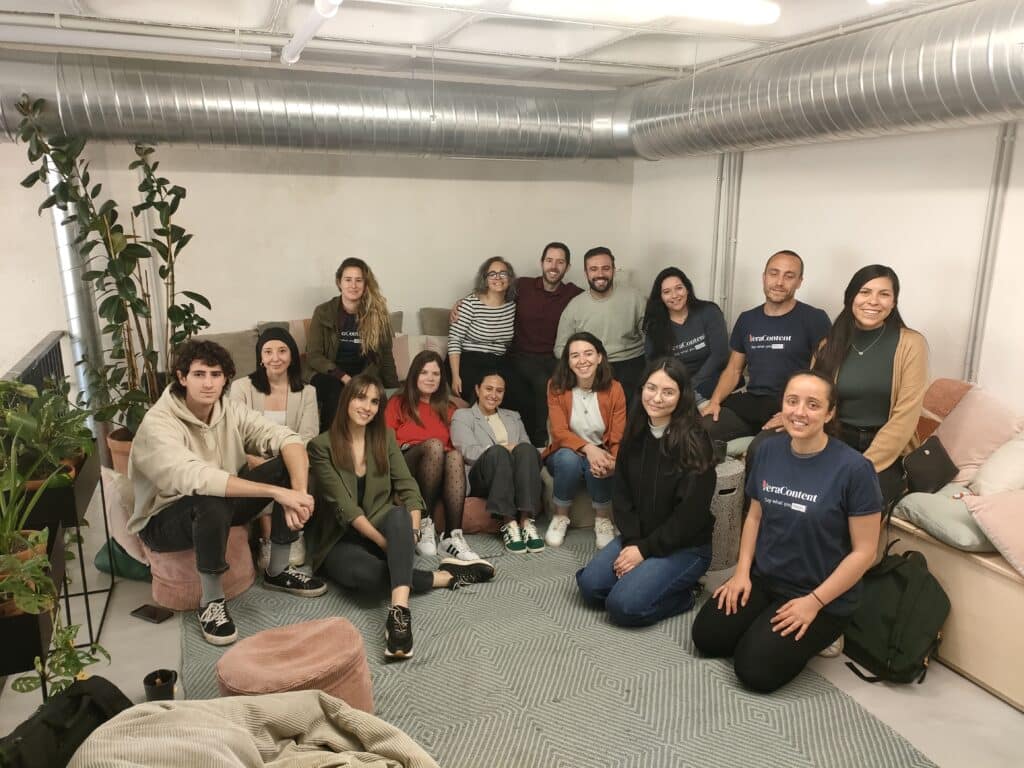If your brand has an international presence, chances are you need to translate a lot of your marketing content into different languages. And that means working with specialized marketing translators.
Automated translation tools are extremely useful—and an important first step—when it comes to translating large-scale content projects into multiple languages. However, you’ll always need a human to do the final proof and make sure the content speaks to your target audience in a natural and impactful way.
This is especially true with marketing content, which aims to appeal to people’s emotions, connect with them on a personal level and ideally, lead them to take action—whether it’s buying your product or subscribing to your mailing list. To do this successfully, the marketing translator really needs to understand your target audience’s mindset and be able to craft the content just for them.
It’s tricky to find the right people who you can trust to adapt your texts for local markets, especially if you don’t speak their language. That’s why we’ve asked the VeraContent team—who hire and work with marketing translators every day—for their advice on hiring the best marketing translation services.
PS: Are you a marketing translator? At VeraContent, we’re always looking for more writers and translators to add to our freelancer database. Check out our current freelance opportunities!
See also: Marketing translation: Engaging audiences in their own language
What is a marketing translator, and what do they actually do?

Marketing translators specialize in taking all forms of marketing content—including social media copy, blog posts, website content, brochures, product descriptions, press releases and video scripts—and adapting it into local languages in the most accurate, engaging and impactful way possible.
Translating is only a first step in the process. Transcreation, or creative translation, is also part of the job. Transcreation is a mix of translation, localization and copywriting and involves ensuring that the text is culturally and linguistically adapted to suit the target audience.
See also: Translation vs. localization: What’s the difference and why should you care?
Marketing translators have to be careful about how the brand will be perceived by consumers in different countries and ensure the adapted content conveys the same tone and image in every market.
Here are a few things that marketing translators do beyond standard professional translation:
- Adapting the text to the locale’s cultural context
- Adapting idioms, puns and metaphors
- Translating slogans and taglines to still carry the essence of the marketing message
- Using locally relevant symbols
- Considering space limitations and formatting
- Maintaining brand tone and style
- Considering images and colors used in marketing materials
- Providing locally relevant and timely examples where necessary
See also: 5 ways to ensure a quality localization – even if you don’t speak the language
Do you work in global marketing? Sign up for our monthly newsletter for real work-related tales from our international team and insights on localization, global content marketing and everything in-between.
How much does marketing translation services cost?

The cost of marketing translation services varies depending on language, location and project type. While some translators charge per word, others charge by hour or project.
At VeraContent, we always pay our linguists per project. We calculate rates depending on the specific project, taking into account the budget, urgency and complexity of the text. For example, if the client is paying a higher rate for urgency, we’ll offer a higher rate to our freelance collaborators.
In a recent podcast episode about launching global marketing campaigns, Allan Formigoni, content and email marketing manager at WeTravel, highlighted the importance of remembering that your professional translation budget will vary a lot depending on the market you’re working in:
“Producing content in English costs way more than producing content in Spanish or Portuguese, for example. Keep in mind that depending on the market you’re targeting, the language and the type of content you want to produce, you might need to change your budget, or you might not have the resources, especially if you’re a startup.”
The best way to get an accurate quote is to reach out to a freelance marketing translator or translation company. Once you share enough information about the project and expectations, they’ll be able to send through a detailed quote.
See also: How to choose the right multilingual SEO agency to grow your business
How to write a marketing translator job description

Before starting the process of hiring marketing translators, make sure to clearly define what skills they need and their roles and responsibilities.
These are the most important marketing translator skills
Many people assume that if you speak more than one language, you can translate. And while that may get you by in casual conversations, it doesn’t mean you can translate marketing messaging.
Apart from fluency in more than one language, translators should have a few added skills. I asked members of the VeraContent team to highlight the most important skills that marketing translators should have, and here’s what they said:
- Strong writing skills: “Having strong writing skills in your target language is essential to producing captivating and engaging pieces of text that remain true to the source text. If you don’t have the essential writing tools in your back pocket, it’s impossible to produce a translation that reads as well as the original.” – Kyler Canastra, head of business development at VeraContent
- Detail-oriented: “When a translator is detail-oriented, you know they’ll provide you with a strong, accurate translation. They prioritize consistency in their translation and make sure to explain any decisions they made for consistency, readability or accuracy.” – Nikole Hyndman, head of project management at VeraContent
- Curiosity: “Translators have to be curious. You can’t simply learn the grammar rules when learning another language and think you’ve mastered it. You have to be curious about the local culture and the people who speak the language—that’s the only way to understand the cultural nuances that stump translators daily.” – Kyler Canastra, head of business development at VeraContent
See also: Cultural marketing: Going beyond simple translations
- Writing and editing skills: “When a translator is a skilled editor, they’re able to make creative decisions that enhance the flow, style and tone of the target text, while still staying loyal to the ideas represented in the source text.” – Nikole Hyndman, head of project management at VeraContent
- Research skills: A translator has to have a strong drive to conduct research. “You can think of a translator as a fact-checker—someone who takes it upon themselves to verify that every detail, from numbers and statistics to place names and job titles, is accurate.” – Kyler Canastra, head of business development at VeraContent
- Cultural knowledge: Cultural knowledge extends to understanding the target audience, cultural context and local trends. “This way, the translation will be more accurate and use the right words depending on the specific situation, such as slang, colloquialisms and common words that are appropriate to the target audience.” – Andrea Soto, human resources & admin assistant at VeraContent
- Industry knowledge: While not always crucial, it helps when the translator understands the industry they are translating in. Industry knowledge enables them to go beyond translation to find the content’s true meaning, and identify and research specific industry terms.
- Taking initiative: The translator needs to be able to point out cultural differences, problems with the source text and irrelevant content and take the initiative to solve them.
- Creativity: “As we are talking about transcreation, the translator needs to be creative with the content they are adapting. This becomes even more important when there is limited space for the content they are working on as they will have to respect these spaces and generate the same engagement when rewriting the content in the target language.” – Andrea Soto, human resources & admin assistant at VeraContent
- Time management: Translators need to adhere to strict deadlines or advise project managers ahead of time if they suspect they won’t be able to make the deadline.
See also: The value of transferable creative skills in the marketing world: 10 inspiring stories
How important are translator qualifications?

“Qualifications are certainly important, but the experience and work samples provided in the candidate’s application are even more essential, as it gives me a better idea of the work that can be expected in a possible collaboration.” – Andrea Soto, human resources & admin assistant at VeraContent
In the case of new linguists just starting in the industry, qualifications act as a good reference until they gain more experience. Good qualifications to look out for include translation studies, modern languages or linguistics. Business, law or science degrees are also helpful when translating technical or legal texts.
See also: Multilingual copywriting: Adapting your ads for new markets
Marketing translator responsibilities and duties
The main responsibilities of a marketing translator include:
- Researching: Translators should research the topic to ensure they know which sources to consult when given a task.
- Using source materials: Translators need to use the marketing materials provided to complete the translation, including a client-specific tone guide or established style guide.
- Using translation and collaboration tools: At VeraContent, we use Phrase as our CAT tool and Podio, Google Drive and Slack to collaborate and share briefs.
- Translating and localizing: Producing accurate translations that sound natural in the target language while maintaining the same meaning as the source language.
- Problem solving: Identify and solve any problems in the source text.
- Consulting experts in specialist areas when needed.
- Proofreading and editing: Lastly, translators need to read through all text to ensure that it reads as if it were written in the target language.
Here are a few extra things to look out for when hiring a translator

I’ll repeat: Just because you can speak more than one language, doesn’t mean you can translate.
I learned this firsthand when going on a tour with a Polish tour guide while my husband, who speaks Polish, tried to translate what the tour guide was saying. Let’s just say that I got the heavily abbreviated version and still don’t know why we were walking around underground tunnels.
While on the hunt for a good marketing translator, here are a few soft skills to look out for:
- Grammar and spelling: Look out for any grammar and spelling mistakes on their resume, job application, LinkedIn profile and other written correspondences as this shows a lack of attention to detail which would subsequently impact the quality of translation.
- Communication and collaboration: When working with translators, collaboration and communication are essential, and it’s important to take note of any issues in these areas early on. This can look like not being responsive, missing deadlines or not being receptive to feedback.
- Actual local experience: At VeraContent, we usually recruit linguists who are from and / or based in the intended target country as this ensures that they truly know the cultural context and are up-to-date with local trends.
If you’re looking for a translator for a specific project, like B2B marketing or translating legal texts, look for similar work samples when reviewing possible candidates. Also, pay attention to their cover letter. It’s the best way to get an idea of their communication style and translation experience.
See also: 18 habits of successful content marketers
Where to find good marketing translators
When working with multilingual content marketing, it helps to have a list of highly skilled and reliable marketing translators readily available. At VeraContent, we regularly make general calls for linguists to ensure that we continuously receive applications from qualified candidates. Then, when a new project comes up, we already have our candidate database to look for suitable translators.
We pride ourselves on providing our clients with polished content translations and transcreations that convey your brand message in the right way to each of your target audiences. Get in touch if your brand needs professional help with any translation or multilingual content marketing projects.
If you work with freelance translators, download our free guide on hiring, onboarding and nurturing relationships with freelancers—a good relationship with your translator is key!


